This article was co-authored by Rebecca Ward, LMFT, SEP, PCC, MA and by wikiHow staff writer, Janice Tieperman. Rebecca A. Ward, LMFT, SEP, PCC is the Founder of the Iris Institute, a San Francisco, California-based business focusing on using somatic expertise to teach individuals and groups the skills to deal with dilemmas using interventions, including her own Original Blueprint® method. Ms. Ward specializes in treating stress, anxiety, depression, and trauma. She is a Licensed Marriage and Family Therapist (LMFT), a Somatic Experiencing® Practitioner (SEP), and a Professional Certified Coach (PCC) accredited by the International Coach Federation (ICF). Rebecca holds an MA in Clinical Mental Health Counseling from Marymount University and an MA in Organizational Leadership from The George Washington University.
There are 8 references cited in this article, which can be found at the bottom of the page.
This article has been viewed 10,890 times.
If you’re struggling with anxiety, you’re definitely not alone. Anxiety is different for everyone, and can lead to a lot of uncomfortable symptoms like fatigue, an increased heart rate, trouble concentrating, and more.[1] Don’t worry. Whether you’re at school, work, or by yourself, there are plenty of quick, easy, and healthy ways to express and cope with your anxiety.
Steps
Warnings
- While they may seem helpful in the moment, alcohol and other drugs won’t really help you express your anxiety in a healthy way.[14]⧼thumbs_response⧽
References
- ↑ https://adaa.org/understanding-anxiety/generalized-anxiety-disorder-gad/symptoms
- ↑ https://www.urmc.rochester.edu/encyclopedia/content.aspx?ContentID=4552&ContentTypeID=1
- ↑ https://www.mhanational.org/helpful-vs-harmful-ways-manage-emotions
- ↑ https://arttherapyresources.com.au/art-therapy-exercises-anxiety/
- ↑ https://arttherapyresources.com.au/art-therapy-exercises-anxiety/
- ↑ Rebecca Ward, LMFT, SEP, PCC, MA. Licensed Therapist. Expert Interview. 29 May 2020.
- ↑ https://www.mayoclinic.org/diseases-conditions/anxiety/diagnosis-treatment/drc-20350967
- ↑ https://www.mhanational.org/helpful-vs-harmful-ways-manage-emotions
- ↑ Rebecca Ward, LMFT, SEP, PCC, MA. Licensed Therapist. Expert Interview. 29 May 2020.
- ↑ https://screening.mhanational.org/content/how-do-i-ask-my-friends-and-family-help/
- ↑ https://www.mayoclinic.org/diseases-conditions/anxiety/diagnosis-treatment/drc-20350967
- ↑ Rebecca Ward, LMFT, SEP, PCC, MA. Licensed Therapist. Expert Interview. 29 May 2020.
- ↑ https://www.mayoclinic.org/diseases-conditions/anxiety/diagnosis-treatment/drc-20350967
- ↑ https://www.fairview.org/patient-education/82144
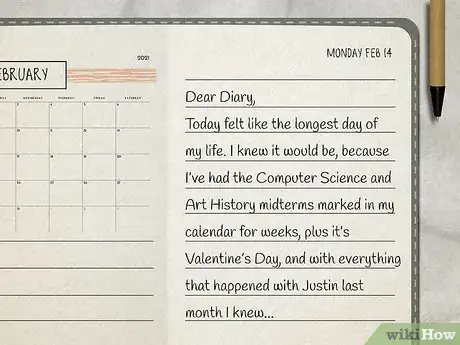

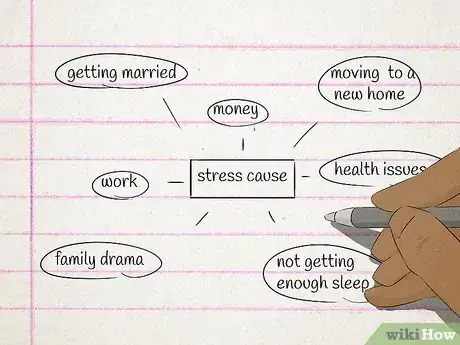
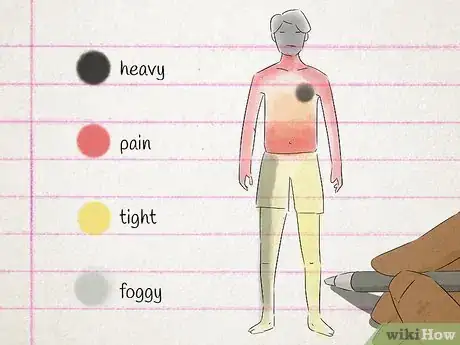
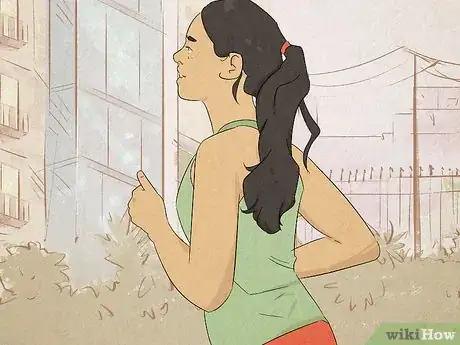

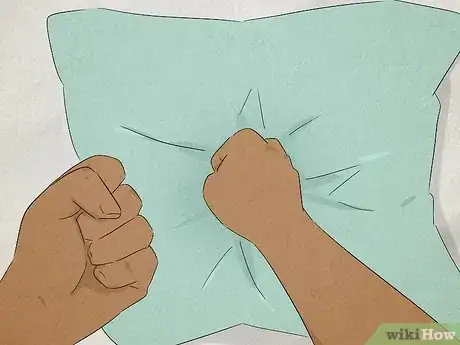

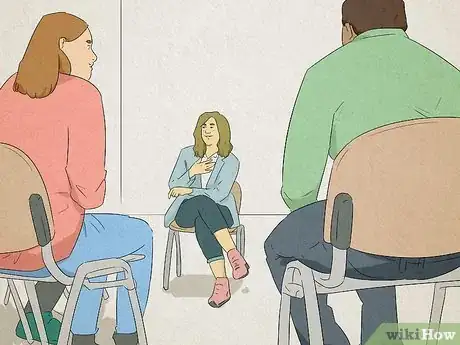
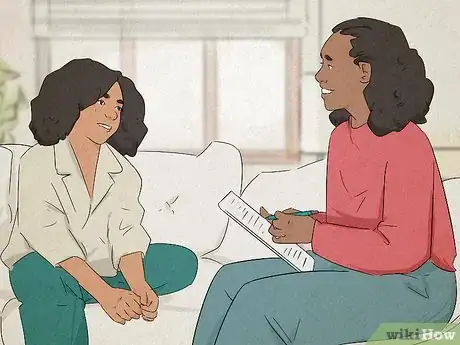




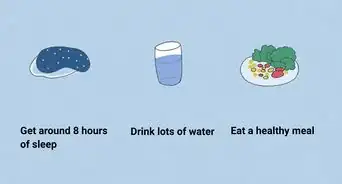
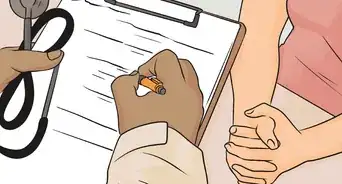


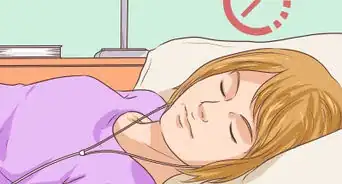


















































Medical Disclaimer
The content of this article is not intended to be a substitute for professional medical advice, examination, diagnosis, or treatment. You should always contact your doctor or other qualified healthcare professional before starting, changing, or stopping any kind of health treatment.
Read More...